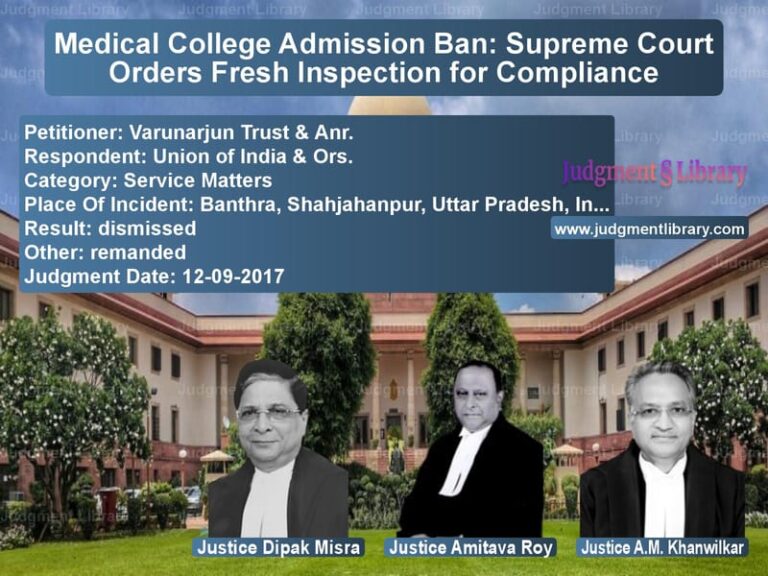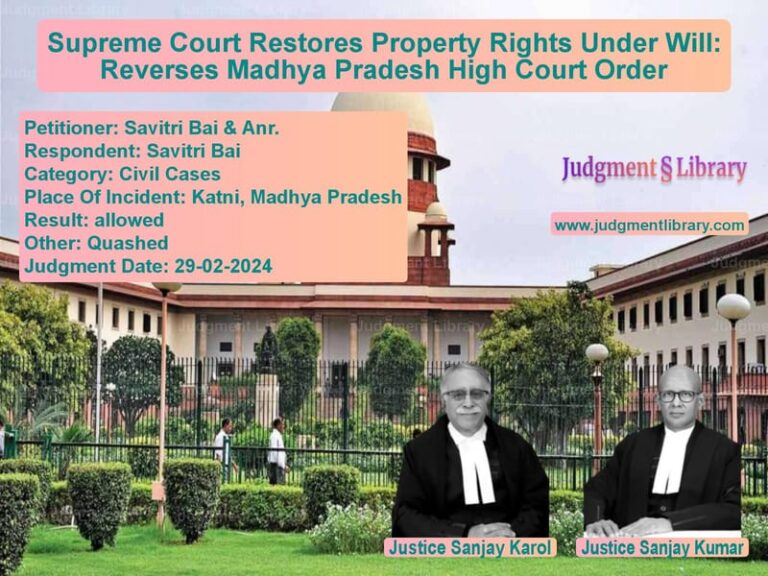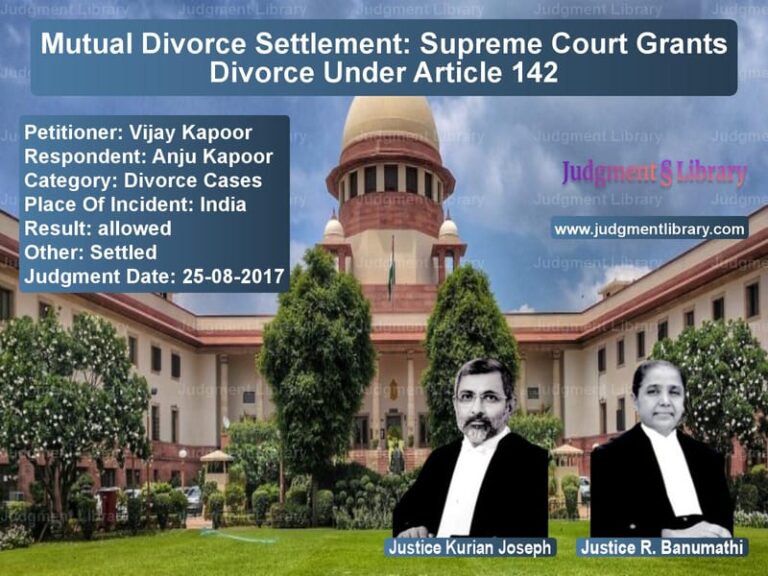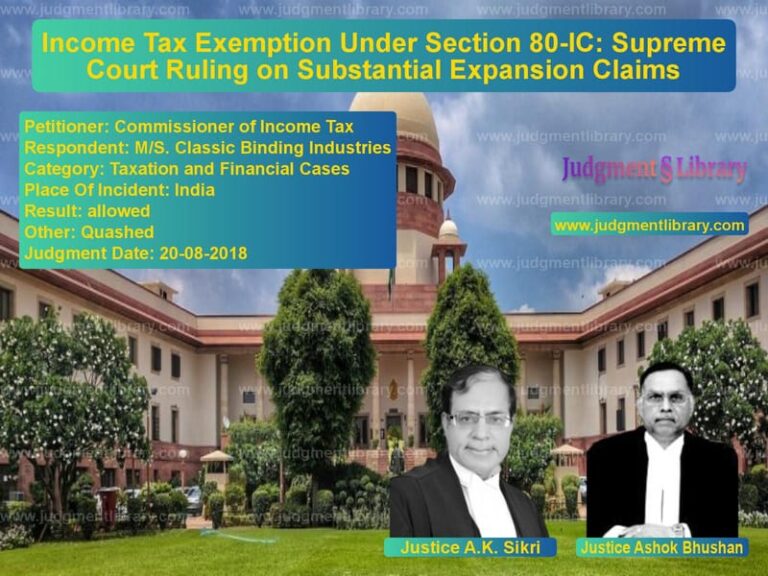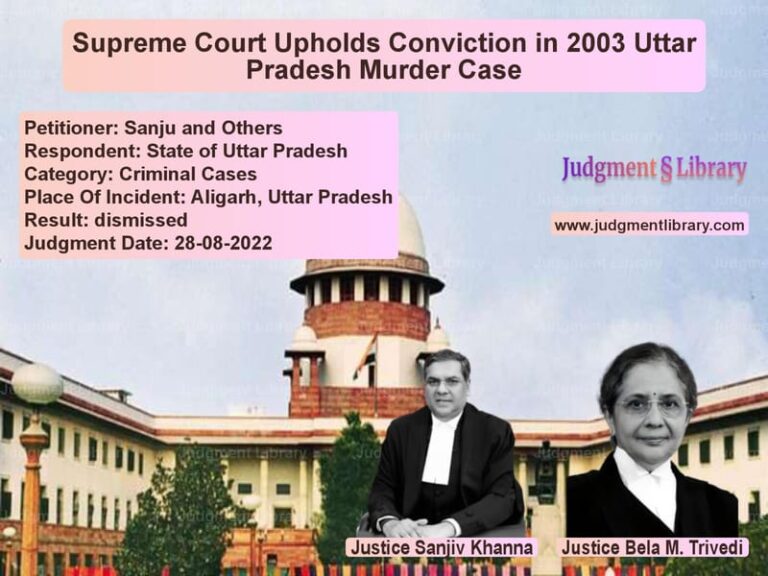Anganwadi Worker Appointment Dispute: Supreme Court Uses Article 142 for Equitable Relief
The Supreme Court of India recently ruled on a dispute involving the appointment of an Anganwadi worker in Punjab, which had escalated into a legal battle between two claimants—one being the daughter and the other the daughter-in-law of the previous incumbent. The case, filed by Kamaljit Kaur against the State of Punjab, was ultimately resolved under Article 142 of the Constitution to ensure fairness and equity.
Background of the Case
The dispute began when an Anganwadi worker’s post fell vacant in Punjab. The two primary claimants were Kamaljit Kaur, the daughter of the deceased worker, and her sister-in-law (the daughter-in-law of the previous worker). Both parties laid claim to the post, leading to a series of legal battles.
The case was initially heard by the Punjab and Haryana High Court, which ruled in favor of one of the parties. However, Kamaljit Kaur appealed the decision before the Supreme Court, arguing that the appointment should have been granted to her based on the applicable rules.
Arguments of the Petitioner (Kamaljit Kaur)
The petitioner, Kamaljit Kaur, made the following arguments:
- She was the rightful claimant to the Anganwadi worker’s position following the death of the previous worker.
- The appointment process was unfair and did not take into account her legitimate claim.
- Despite her eligibility, the appointment was granted to the daughter-in-law of the deceased worker.
- The High Court erred in its judgment by not considering the broader principles of justice and fairness.
Arguments of the Respondent (State of Punjab)
The respondents, including the State of Punjab, countered with the following arguments:
- The appointment process was conducted fairly, and the selected candidate met the eligibility requirements.
- The petitioner had not demonstrated any procedural irregularity in the selection process.
- The case did not warrant Supreme Court intervention as it involved an employment dispute that had already been adjudicated by the High Court.
Supreme Court’s Analysis and Judgment
The Supreme Court acknowledged that the case primarily involved a dispute over employment and succession within a family. However, given that the selected candidate had already been serving as an Anganwadi worker for over 10 years following an interim order, the Court deemed it inappropriate to overturn the appointment.
The Court stated:
“Having regard to the factual matrix as above, we do not think that the merits of the matter need to be considered, and it is a case where this Court should invoke its jurisdiction under Article 142 of the Constitution of India for striking equity and doing complete justice.”
The Court then provided an equitable resolution:
- Kamaljit Kaur was directed to pay Rs. 1,00,000 as compensation to the appointed Anganwadi worker (Respondent No. 4).
- The amount was to be paid within three months via a demand draft.
- The compensation was deemed to be a full and final settlement of all claims.
- The petitioner, Kamaljit Kaur, was allowed to continue in service for all official purposes.
- The High Court’s judgment was modified accordingly.
Final Verdict
The Supreme Court disposed of the case by invoking its extraordinary powers under Article 142, balancing the interests of both parties. While allowing the appointed worker to continue in service, the Court also ensured that Kamaljit Kaur received equitable compensation.
Implications of the Judgment
This ruling has significant implications for employment disputes, particularly in government and semi-government institutions:
- Reinforces the Supreme Court’s ability to deliver justice through equitable remedies.
- Sets a precedent for resolving disputes without unnecessary disruption to public service appointments.
- Demonstrates the Court’s reluctance to displace workers who have served for a long period due to interim orders.
- Highlights the importance of ensuring fair appointment processes while balancing competing claims.
This judgment showcases the Supreme Court’s commitment to ensuring fairness and practicality in employment-related disputes.
Don’t miss out on the full details! Download the complete judgment in PDF format below and gain valuable insights instantly!
Download Judgment: Kamaljit Kaur vs State of Punjab & Or Supreme Court of India Judgment Dated 11-07-2017.pdf
Direct Downlaod Judgment: Direct downlaod this Judgment
See all petitions in Employment Disputes
See all petitions in Recruitment Policies
See all petitions in Public Sector Employees
See all petitions in Judgment by Kurian Joseph
See all petitions in Judgment by R. Banumathi
See all petitions in Modified
See all petitions in Modified
See all petitions in supreme court of India judgments July 2017
See all petitions in 2017 judgments
See all posts in Service Matters Category
See all allowed petitions in Service Matters Category
See all Dismissed petitions in Service Matters Category
See all partially allowed petitions in Service Matters Category


